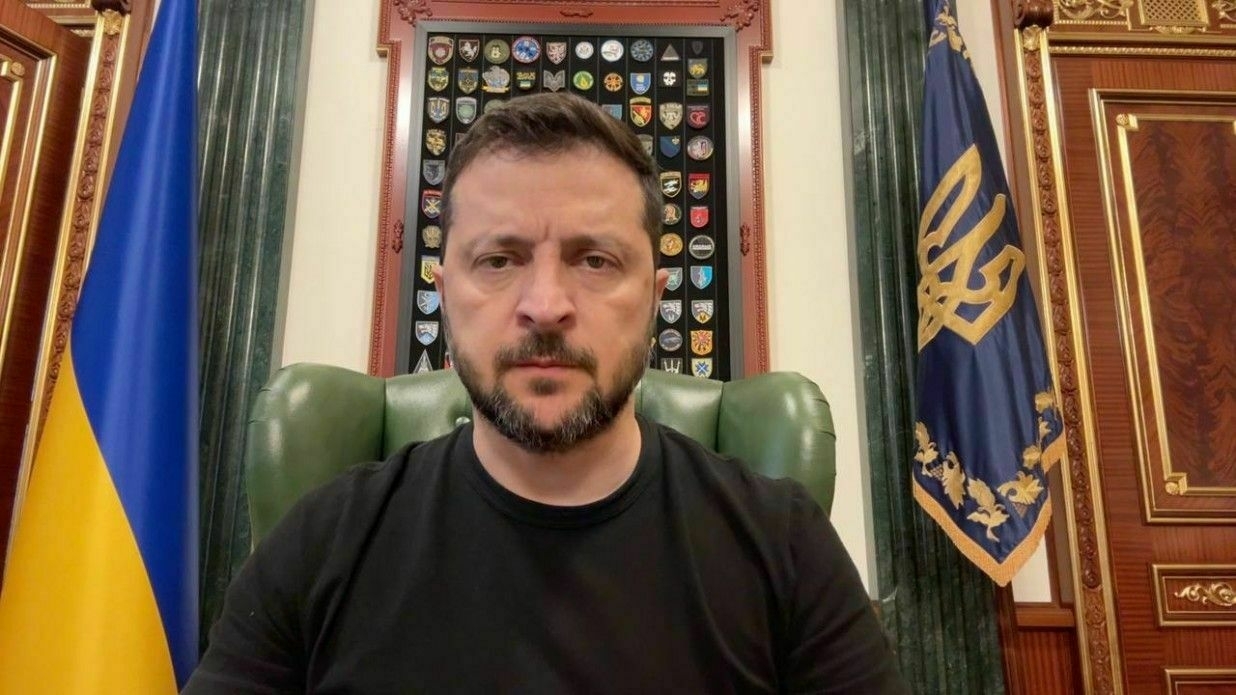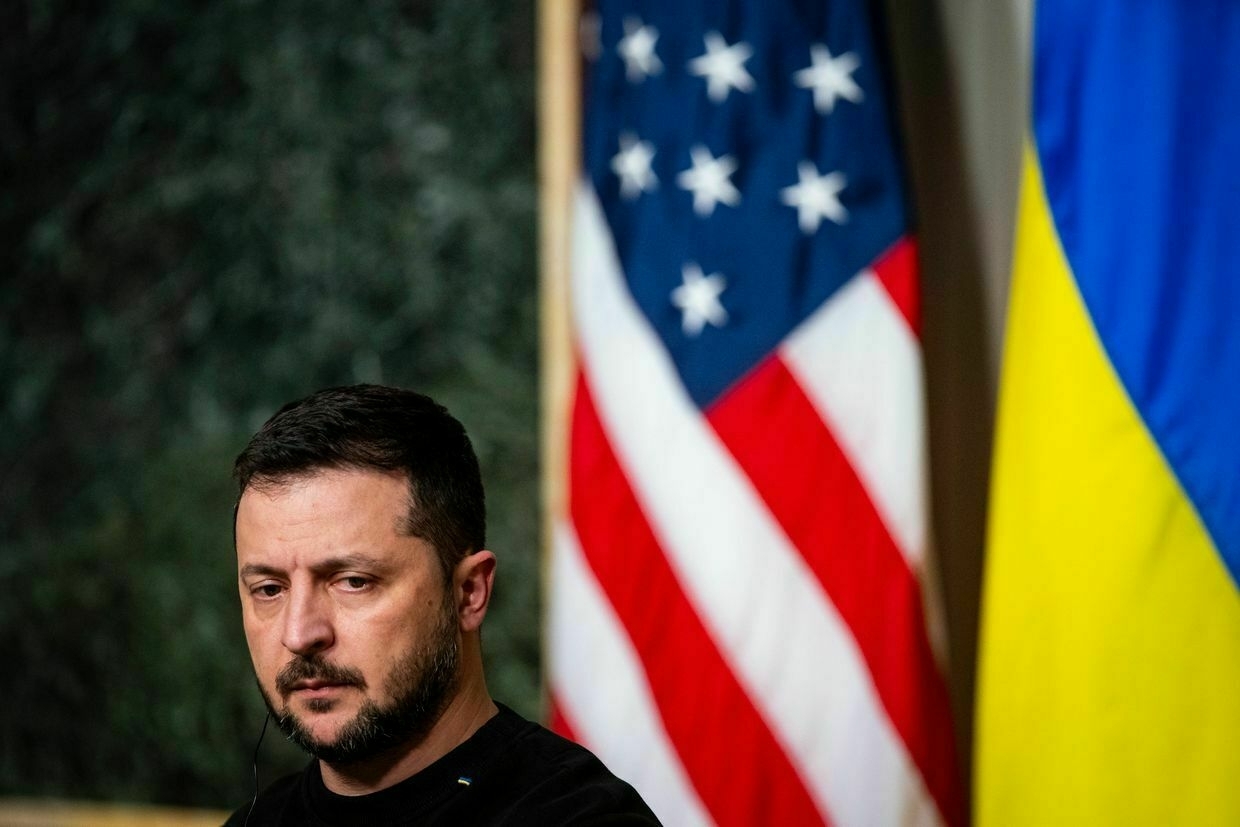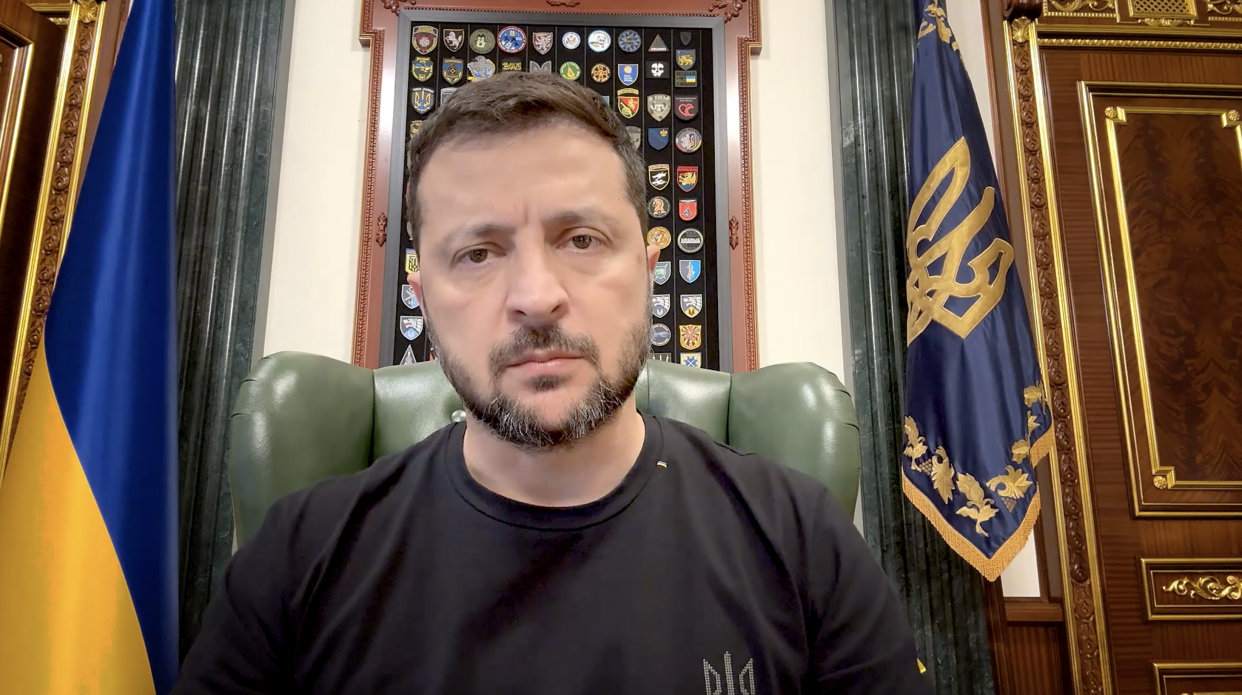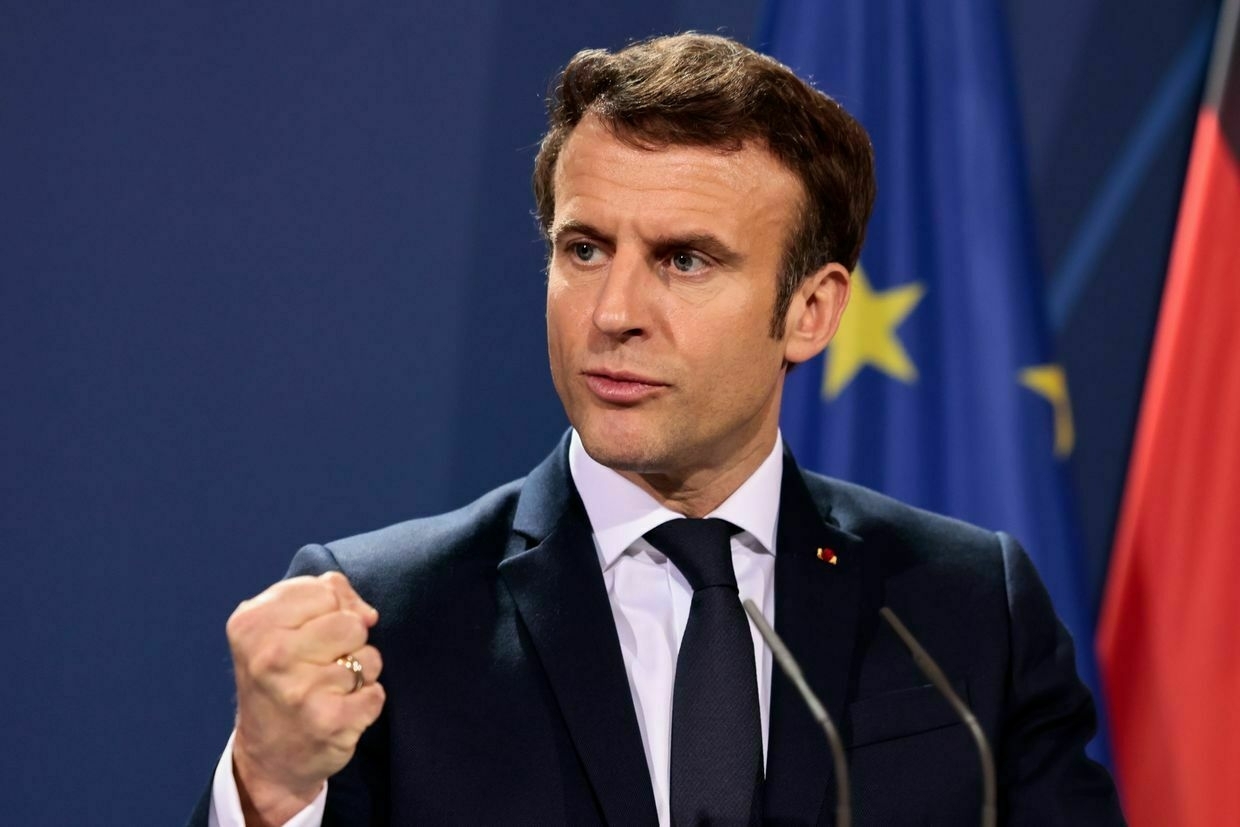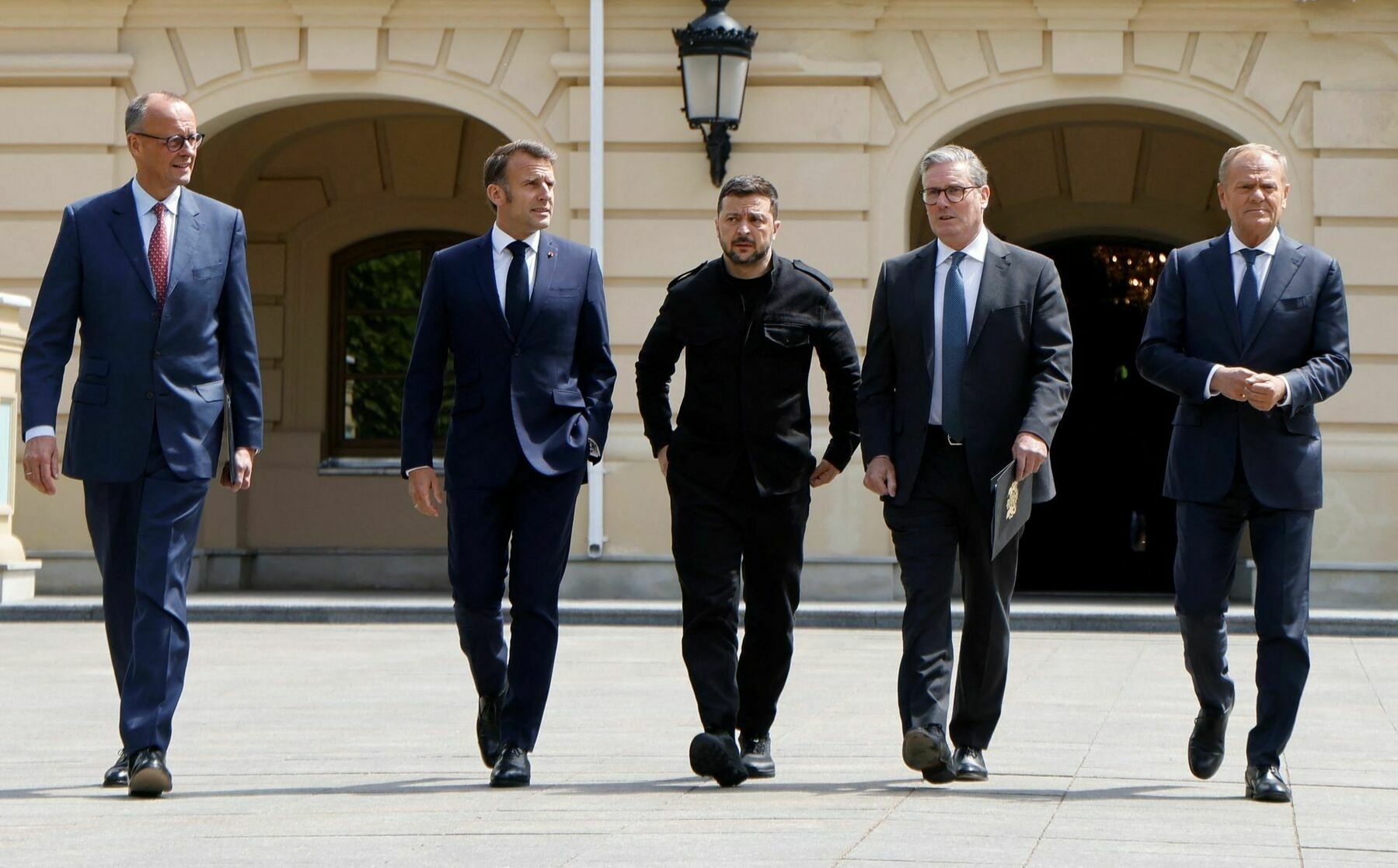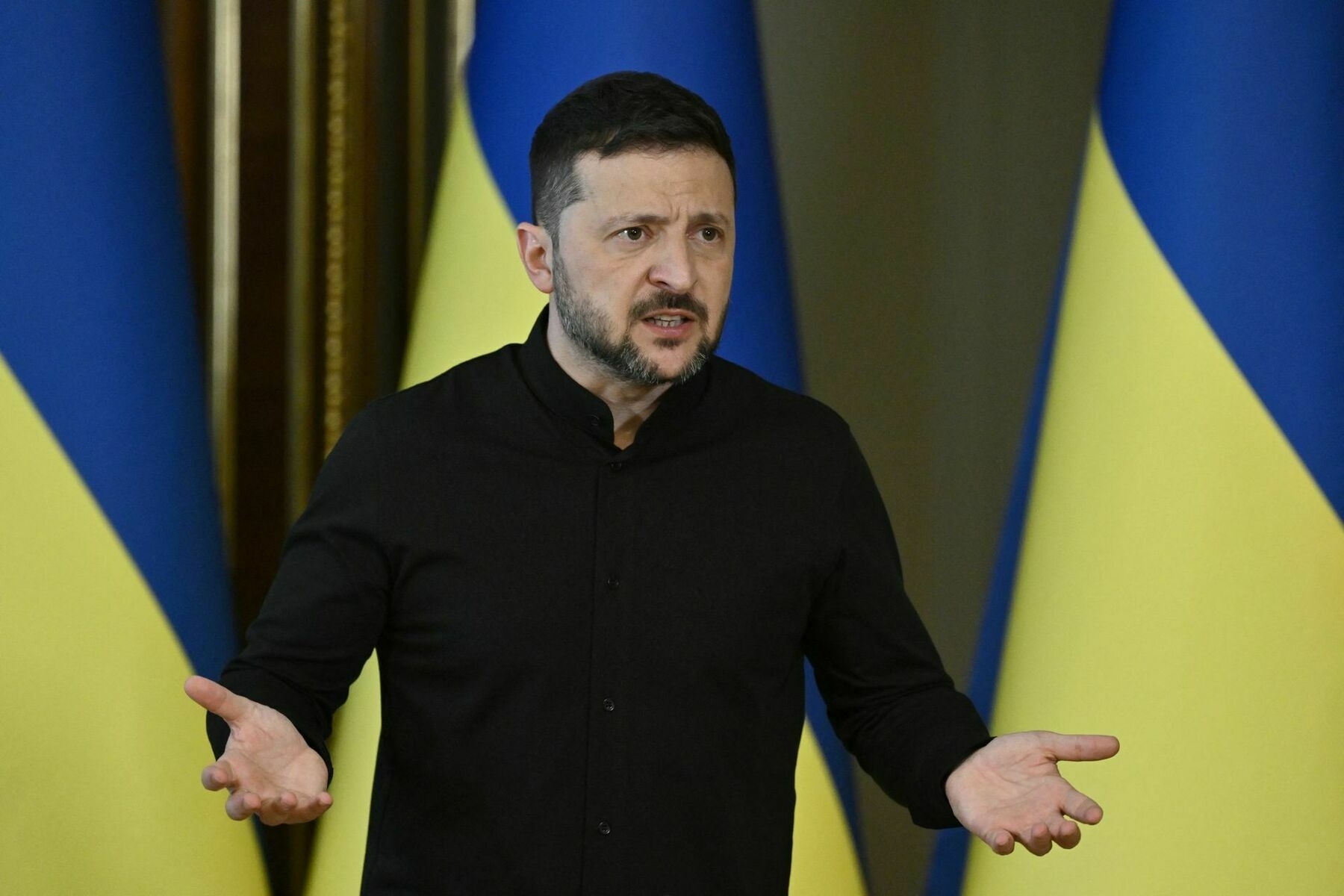-
European leaders seek talks with Trump before Putin meeting, Bloomberg reports
As part of ongoing U.S.-Russia discussions, Putin told special envoy Steve Wikoff during an Aug. 6 meeting that Russia would agree to a full ceasefire if Kyiv withdrew its forces from Donetsk and Luhansk oblasts, granting Moscow full control of those partly occupied regions as well as Crimea.
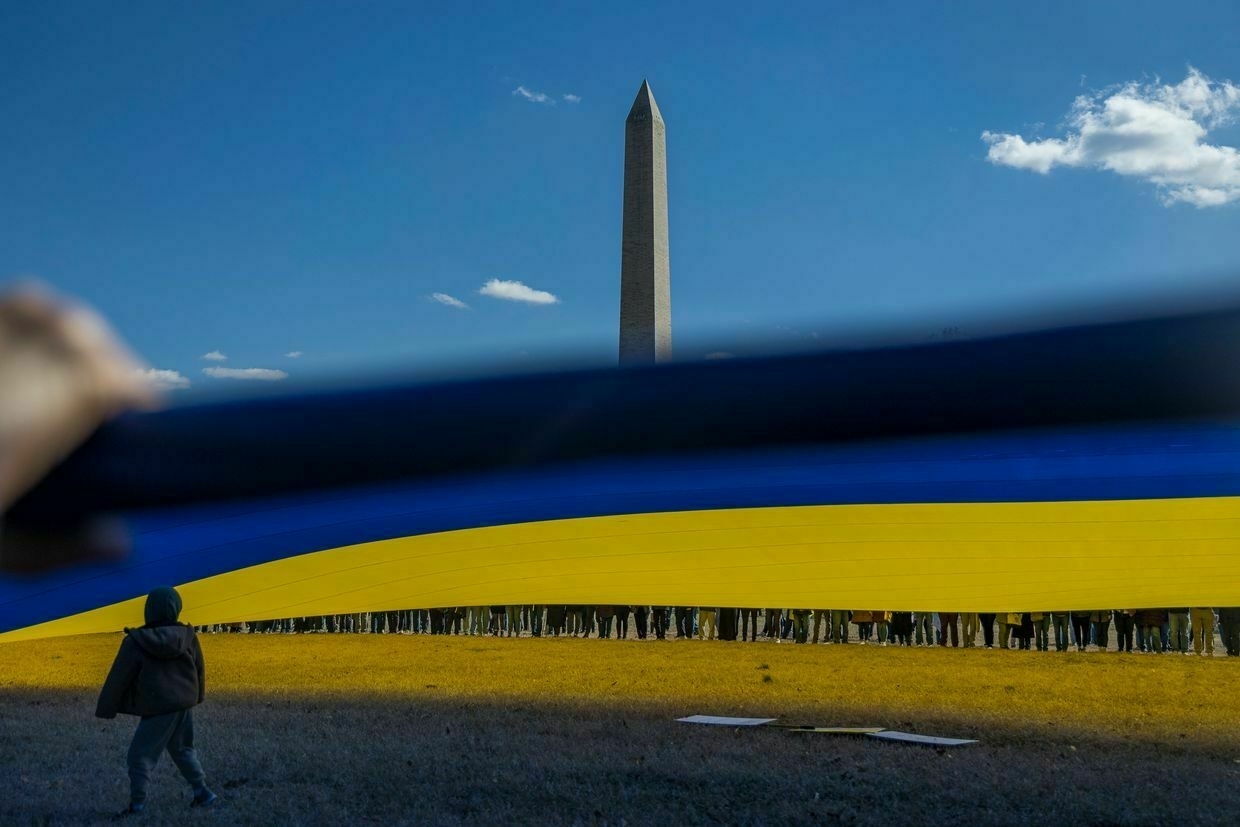
-
Ukraine will not let Russia 'deceive America,' Zelensky says ahead of upcoming Trump-Putin summit
-
'It's not gonna make anybody super happy' — JD Vance praises Trump as peacemaker while admitting Russia-Ukraine deal may fail
-
Slovakia's Fico claims Ukraine will 'have to pay dearly' ahead of Putin-Trump meeting
-
No to Peace At All Costs
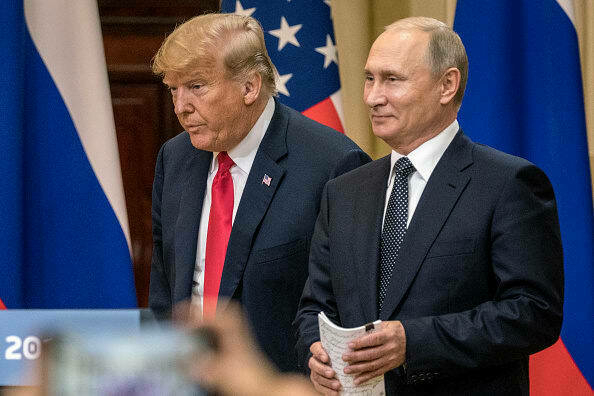
Donald Trump (L) and Vladimir Putin during a joint press conference after their summit on July 16, 2018 in Helsinki, Finland. (Getty Images) Editor’s note: We recently learned that 97% of regular readers aren’t paid subscribers, so we’re considering ways to encourage those of you who value our work to support us.
One of this is a more regular paywall. Right now the vast majority of our work is free.
If you’re a free subscriber who has been reading us for a while, what are you waiting for? Help support us now if you don’t want us to disappear.I had a heated discussion with a Republican friend recently: I refused to grant the notion that Trump was substantially shifting his position on Ukraine.
His argument was that Trump was beginning to use a harsher tone with Putin. I responded that I couldn’t possibly rest my hopes on vibes, but only on actions.
Sadly, too many people are looking at Trump as if they have forlorn hope that a toxic ex will change: they are setting themselves up to be hurt yet again.
After the paywall:
—What the U.S. has already conceded — for nothing
—How Ukrainians are viewing the likelihood of the war pausing
—What peace requires, and what happens next -
Trump and Putin will meet in Alaska, but Ukraine declares: no territorial concessions!
-
Trump, Putin to meet in Alaska, Kherson in crisis | Ukraine This Week
-
White House considering inviting Zelensky to peace talks in Alaska, media reports
-
❗Trump and Putin: Meeting in Alaska – What's next? #shorts
-
'We stand firm on clear Ukrainian positions' — Zelensky warns Russia will reinvade if ceasefire favors Moscow, ahead of Trump-Putin meeting
-
'Future of Ukraine cannot be decided without Ukrainians' — EU leaders react to Russia's ceasefire proposal ahead of Trump-Putin meeting
-
Trump meets Putin: What awaits Ukraine?
-
Zelensky stands firm on Ukraine's territorial integrity amid upcoming Trump-Putin meeting in Alaska
Ukrainian President Volodymyr Zelensky declared that the territorial issues are already enshrined in the Ukrainian Constitution, making it impossible to concede, as Russia's attempts to claim the land will not be entertained.
In a move to address the ongoing conflict on Ukrainian soil, U.S. President Donald Trump announced plans for a meeting with Kremlin leader Vladimir Putin in Alaska. However, Zelensky emphasized the war cannot be resolved without Ukraine's involvement, highlighting the crucial role of the nation in any peace agreement.
Zelensky underscored that the Russian president underestimated the resilience of the Ukrainian people and attempted a "hopeless decision" to capture the country. He asserted that Ukrainians are strong because they are defending their homeland.
"Throughout the war, many have sided with Ukraine, even those aligned with Russia recognize its wrongdoing," Zelensky said, asserting that the Ukrainian people deserve peace.
The President urged all partners to understand what constitutes a dignified peace, stating that Russia, having initiated and prolonged the war, must bring it to an end.
"The true problem hinges on this, not anything else. The Ukrainian territorial matter is embedded in our Constitution. No one will waiver, and Ukrainians will not surrender their land to the occupier," Zelensky emphasized.
Zelensky expressed Kyiv's readiness for genuine decisions that could foster peace while warning that any arrangements made against Ukraine and without its participation directly undermine the peace process.
"These are dead decisions. They never work," he warned.
Highlighting the need for a real and respected peace, Zelensky stated : "We are ready to work with President Trump and our partners for real, lasting peace—a peace that won't crumble under Moscow's desires."
He also thanked Ukrainians for their unity and soldiers for preserving independence.
"Stand firm. This is our land," the President urged.
U.S. and Russian presidents are set to meet on August 15 in Alaska.
American President Donald Trump also proposed a territorial swap as part of a potential peace agreement between Russia and Ukraine.
-
Ukraine, Europe reject Putin's ceasefire proposal, present counterproposal to US ahead of Trump-Putin meeting, WSJ reports
-
Exclusive: Putin to demand Ukraine cede new territory in 'Alaska peace plan' — US likely to agree, Kyiv to reject
At their meeting next week, U.S. President Donald Trump and Russian President Vladimir Putin will discuss a peace plan that would see Ukraine surrendering new territories to Russia.
Putin passed the plan to special envoy Steve Witkoff during their meeting in Moscow earlier this week.
The plan would see
-
Exclusive: Putin to demand Ukraine cede new territory in 'Alaska peace plan' — US likely to agree, Kyiv to reject
At their meeting next week, U.S. President Donald Trump and Russian President Vladimir Putin will discuss a peace plan that would see Ukraine surrendering new territories to Russia.
Putin passed the plan to special envoy Steve Witkoff during their meeting in Moscow earlier this week.
The plan would see
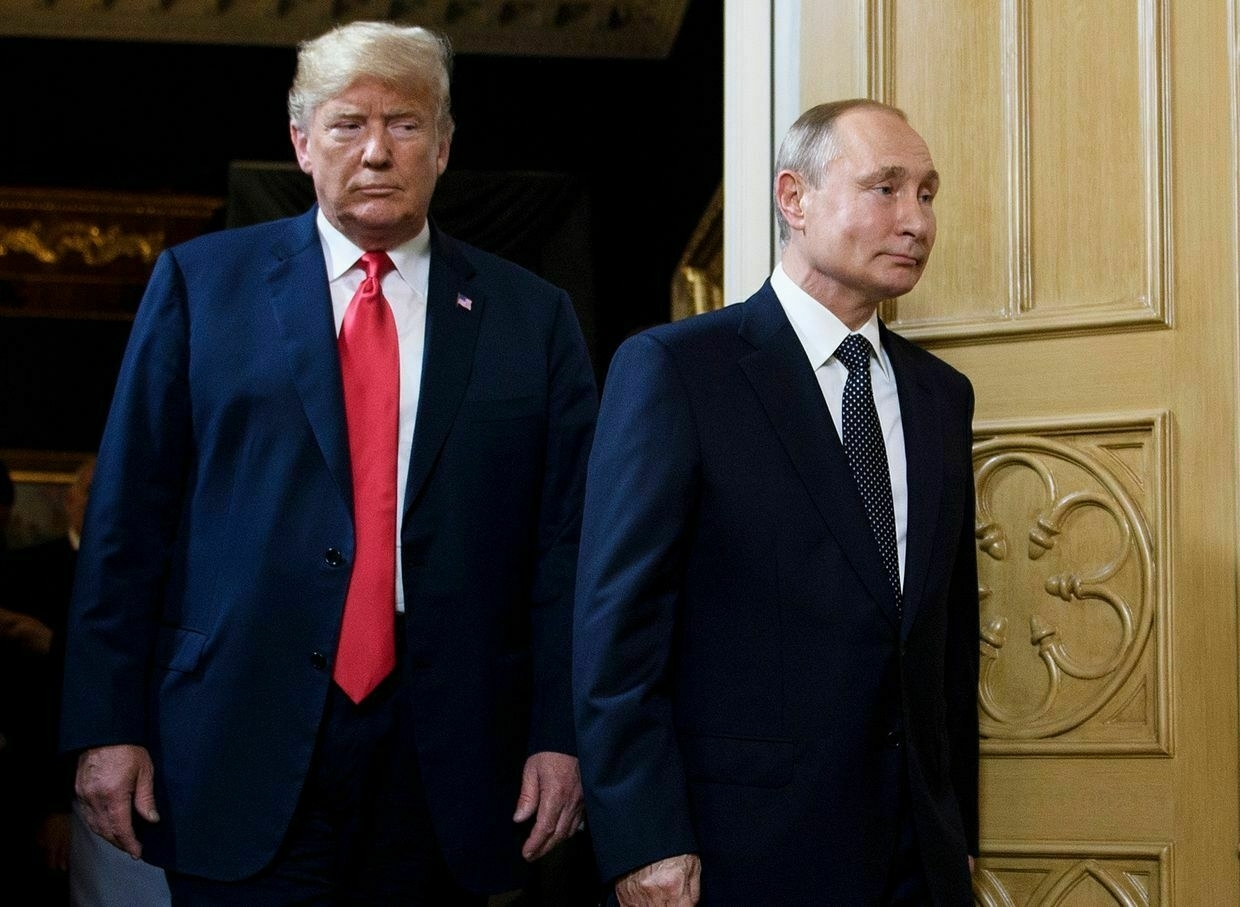
-
IMPORTANT! Zelenskyy responds to upcoming Trump-Putin meeting: Real peace is needed
-
IMPORTANT! Zelenskyy responds to upcoming Trump-Putin meeting: Real peace is needed
-
'Ukrainians will not gift their land' — Zelensky rejects idea of territorial concessions to end Russia's war
-
'Ukrainians will not gift their land' — Zelensky rejects idea of territorial concessions to end Russia's war
